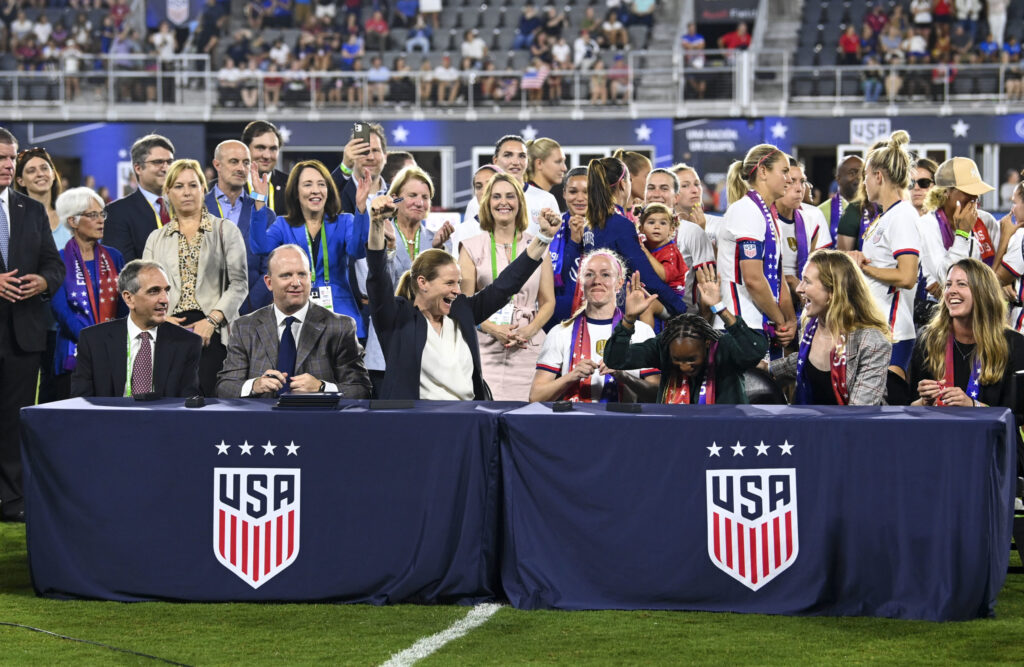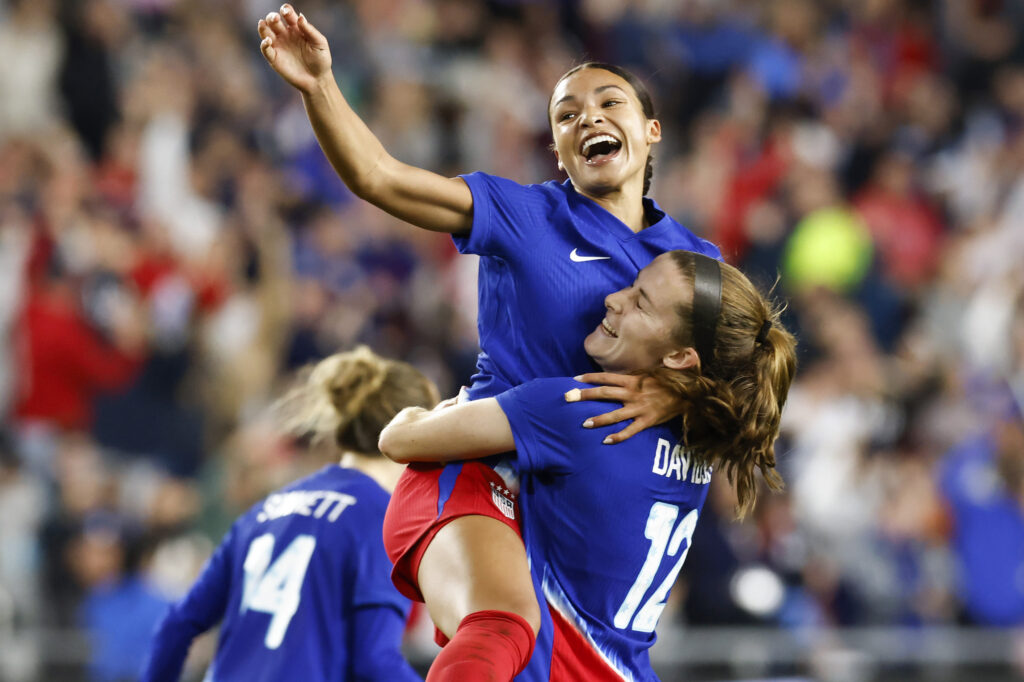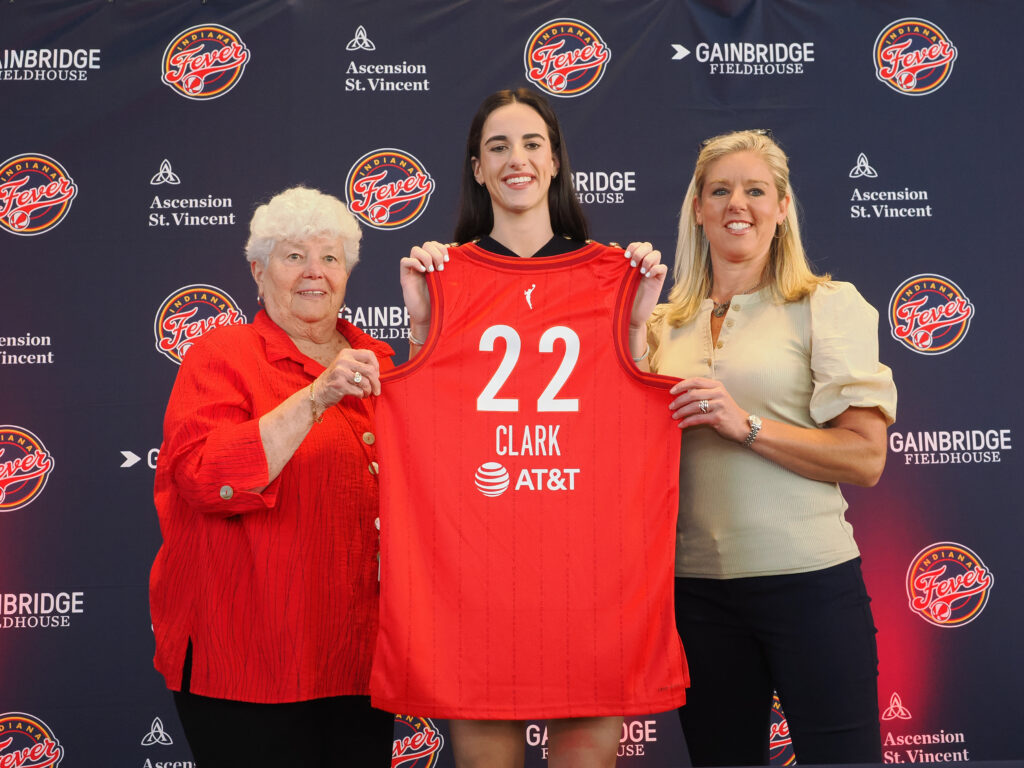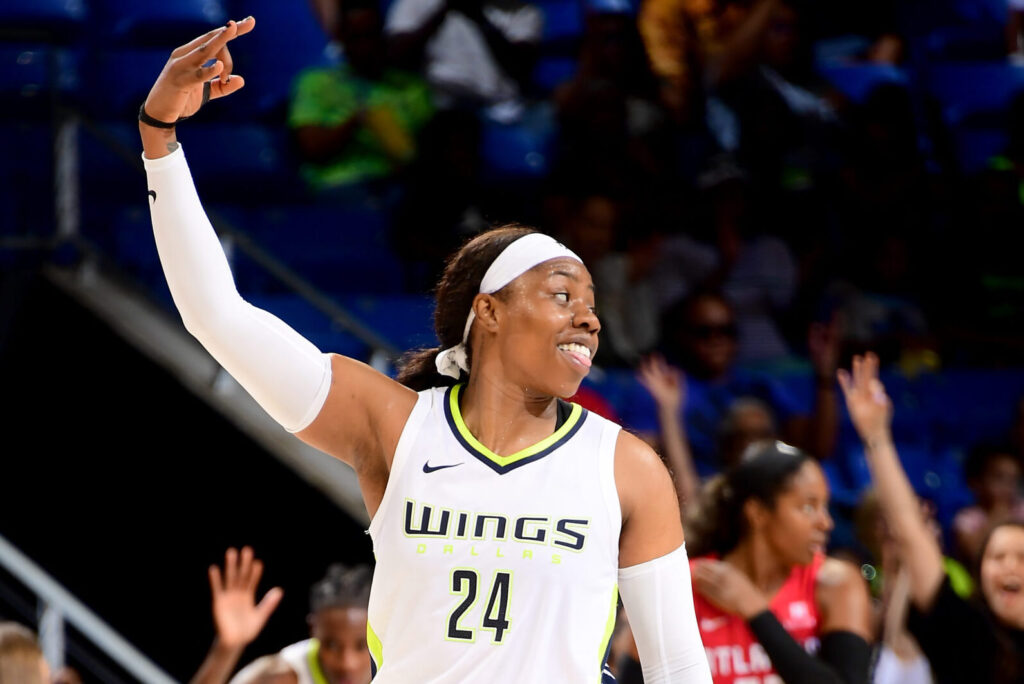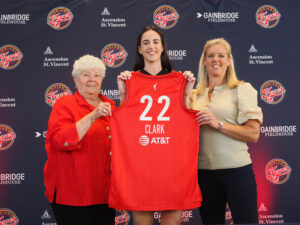The U.S. women’s national soccer team formally signed its historic new collective bargaining agreement following its 2-1 win over Nigeria on Tuesday night.
Alongside representatives of the men’s national team members and surrounded by several members of Congress, USWNT players Crystal Dunn, Becky Sauerbrunn and Sam Mewis signed the CBA, which guarantees equal pay for the women’s team.
Former players also joined the team on the pitch at Audi Field in Washington for the ceremony, including Briana Scurry, Kristine Lilly, Lori Lindsey and U.S. Soccer president Cindy Parlow Cone.
“We wouldn’t be here without all the players that came before,” said Megan Rapinoe, noting the presence of those players. “It feels like a very full circle moment, and I’m so proud of all of us.”
Rapinoe, Sauerbrunn and three other teammates — Alex Morgan, Carli Lloyd and Hope Solo — filed a gender discrimination lawsuit against U.S. Soccer in 2016. After a long journey, the men’s and women’s national teams announced new CBA deals with U.S. Soccer in May that close the pay gap between the sides.
“There were so many ups and downs,” Parlow Cone told ESPN. “It was like a roller-coaster ride. I [would] think we were getting close to a deal, and then it feels like it’s falling apart, then we’re getting closer to a deal and it’s falling apart.”
Sauerbrunn, the captain of the USWNT and president of the USWNT Players Association, took a moment before the signing to thank players past and present, as well as others who worked toward the deal done. She also called it a “huge win” for the labor movement and workers’ rights.
The Captain is speaking. 🎤 pic.twitter.com/neuHkTNHSi
— U.S. Women's National Soccer Team (@USWNT) September 7, 2022
“I wasn’t sure it was going to happen during my career,” Sauerbrunn told reporters after the game. “I’m really happy that this current squad can kind of bring it across the line, with the leadership from (Parlow Cone) and with the coordination of the men’s national team. A lot of groups had to work together, and so there was a sense of relief, because it was really complicated, making sure that all needs were met, as well as the federation being happy with the agreement as well.”
Of the 18,869 fans in attendance for the match, many stayed after the final whistle to watch the signing and join in the celebration.
“Having the crowd there and supporters stay, I was wondering ‘are they gonna stay or not?’ and a lot seemed to stay,” Sauerbrunn said. “Just being able to share it with them, because honestly, they’re the ones that show up for the games. They’re the ones that supported us, chanting ‘Equal Pay.’”
Parlow Cone noted the importance of making it a public event, especially considering the road it took for the USWNT and U.S. Soccer to get to equal pay.
“This is a historic moment,” Cone said. “This has never been done before…We wanted a celebration. We didn’t want to just sign in some room that no one saw or emailing it. We wanted to make an event of it and celebrate it, because I think everyone is proud, and they should be.
“For this day to finally be here, I literally can’t put it into words how important this is to me personally, but more important, what it’s going to mean to the rest of the world — not just here in the U.S., not just in sports, but to the rest of the world.”
